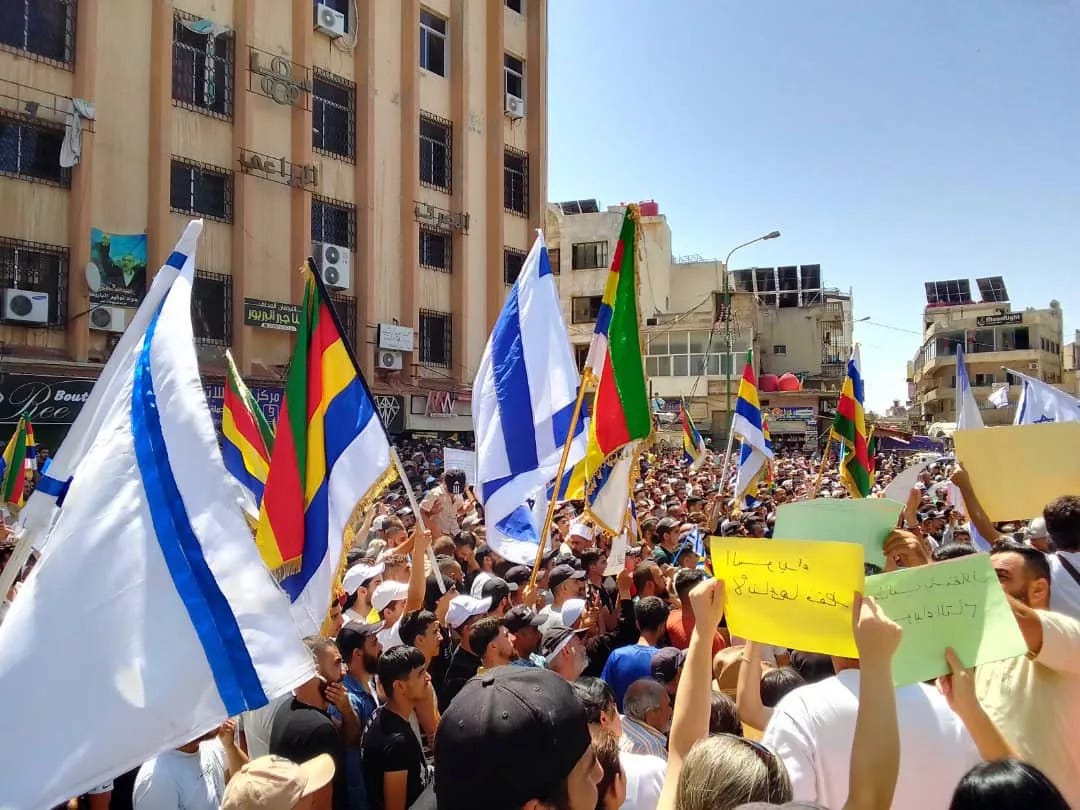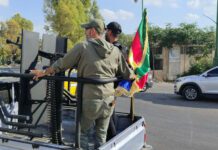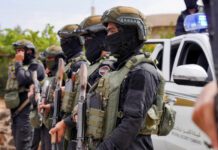
Officials warned Friday, August 22, that escalating actions linked to outlawed groups are worsening conditions for residents in Suwayda province, where disruptions to food deliveries and targeted attacks on community institutions have heightened tensions.
Brig. Gen. Ahmad al-Dalati, commander of internal security in Suwayda, confirmed that supply operations coordinated with the Ministry of Interior and the local Chamber of Commerce have continued, with more than 1,000 tons of food brought into the governorate on August 17. But merchants later declined to distribute the goods after receiving threats.
“The Ministry of Interior affirms that the Internal Security Forces are fully prepared to ensure a safe and stable trade route for the entry of food supplies into the governorate,” Dalati said. He added that roads remain secure for continued deliveries to citizens.
Warnings Against Illusions of Secession
Community leaders have also expressed concern that divisive rhetoric is fueling instability. Suleiman Abdulbaqi, leader of the Free Jabal al-Arab Gathering, urged an end to what he called “illusions” of creating an independent entity in the south.
“These proposals do not serve the residents but are used to advance personal interests at the expense of people’s bloodshed and displacement,” Abdulbaqi wrote in a social media post. He called for urgent solutions for displaced residents and families of the disappeared, adding that the public rejects living on aid or being subject to exploitation.
He further criticized figures he described as “warlords,” accusing them of enriching themselves while civilians face hardship. “The one who took millions of dollars and is acting like a leader over you, tell me something he has given you other than blood, destruction, killing, displacement and humiliation,” he said.
Attacks on Religious Symbols Condemned
The crisis has also taken a sectarian dimension after recent attacks on the Ain al-Zaman shrine and the home of Sheikh Aql Yusuf Jarbou. Sheikh Laith al-Balous, speaking on behalf of the Dignity Guesthouse, condemned the assaults as a “heinous act” against sacred Druze symbols.
“This crime represents nothing but a culture of chaos and deviation, which we reject in its entirety,” Balous said, likening the attacks to actions of extremist groups. He criticized the lack of formal condemnation from some religious and political authorities, arguing that silence risked emboldening those responsible. Tensions escalated further, with pro-Hijri fighters attacking Abdulbaqi and his family, abducting his father, assaulting his mother and brothers and burning his home and guest house.
Government Rejects Israeli Border Corridor
In parallel, a government source told the SANA there will be no cross-border Israeli corridor, emphasizing that aid is delivered through coordination with state institutions in Damascus. The source said national convoys, supported by UN agencies, continue to operate, reflecting the government’s stated commitment to meeting humanitarian needs.
Push for Unity Amid Mounting Strain
Despite mounting pressures, officials and community leaders reiterated that most residents reject partition. Balous noted in an earlier interview that Suwayda’s population remains committed to Syria’s unity, contrasting that position with al-Hijri’s calls for separation. As tensions persist, the humanitarian strain continues to grow, with leaders calling for reconciliation, restoration of stability, and the protection of religious and social symbols.








